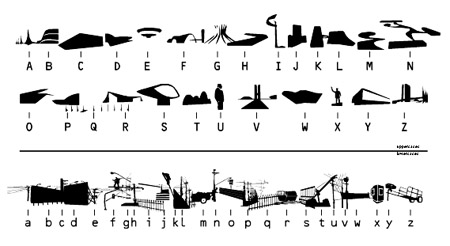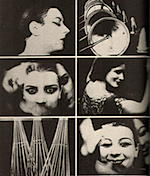By DENIS DONOGHUE [Hudson Review] – Yeats and Eliot were not familiars; they met occasionally and agreeably from as early as 1915—at least once at a meeting of the Omega Club, and again when they lunched at the Savile. Eliot published him in The Criterion. Yeats and Eliot were also active together in their support of Rupert Doone’s Group Theatre. Eliot’s Sweeney Agonistes, published on December 1, 1932, was performed by the Group in their Rooms in London on November 11, 1934, the text as we have it being eked out with music by William Alwyn, masks by Robert Medley, and presumably a good deal of stage business. That was its first English performance: it had already been done by Hallie Flanagan’s Vassar College Experimental Theatre during Eliot’s months in the U.S. in 1933. Yeats attended another performance of it by the Group Theatre in London on December 16, 1934. Eliot and Yeats also tried to found a Poets’ Theatre in London in 1935, with no success. So they were associates from time to time but not companions. Yeats and Pound make a different relation: they were friends and remained friends, especially after the three winters they spent in Stone Cottage, Coleman’s Hatch, Sussex. Continue reading “Eliot to Yeats to Pound – the literary infield of the 20th century.” »
Saturday, October 23, 2010
By LYDIA DAVIS [Paris Review] – I wrote the first draft of Madame Bovary without studying the previous translations, although I gathered them and took the occasional peek. Up to the front door would come Andy, our cheerful rural mail carrier, with yet two more packages—this time, Alan Russell’s Madame Bovary
without studying the previous translations, although I gathered them and took the occasional peek. Up to the front door would come Andy, our cheerful rural mail carrier, with yet two more packages—this time, Alan Russell’s Madame Bovary (a British Penguin Classic from 1950) and the volume of Flaubert’s letters that covered the period in which he was writing Madame Bovary. Reading the letters was a bright wide-open window on Flaubert the man—far better than any biography. I read them to know him better and to hear him grumble, usually, about the novel and the experience of writing it. Most of his letters were to his lover, the poet Louise Colet, and it was really too bad for all of us when they broke up two-thirds of the way through the writing of the book.
(a British Penguin Classic from 1950) and the volume of Flaubert’s letters that covered the period in which he was writing Madame Bovary. Reading the letters was a bright wide-open window on Flaubert the man—far better than any biography. I read them to know him better and to hear him grumble, usually, about the novel and the experience of writing it. Most of his letters were to his lover, the poet Louise Colet, and it was really too bad for all of us when they broke up two-thirds of the way through the writing of the book.
Continue reading “Getting to know Gustave, in other words.” »
By SHOZAN JACK HAUBNER [Buddhadharma via Utne Reader] – Zen practice is good for angry people. The form is tight. It squeezes that deep red heart-pulp, pushing up emotions from way down inside you. A lot of stuff comes up when you do this practice. Zen gets your juices flowing. And with these juices come seeds—the seeds of your behavior, your character, your anger, all flushed out into the open for you to see.
Continue reading “Zen and the art of anger management.” »
Wednesday, October 20, 2010
By IAN CROUCH [The New York Review of Ideas] – In 1969, [Sean] Shesgreen and several colleagues interrupted a Modern Language Association conference in New York to protest the organization’s apolitical stance on the Vietnam War. The protests temporarily closed down the conference, and Shesgreen was arrested along with two confederates.
“I spent the night in the Tombs of New York,” he recalls, laughing. “As a result of our protest the hotel was shut down, and I think it did move the MLA to become more politically active.”
Continue reading “Norton v Longman: A battle in a war you didn't know was being fought.” »
Tuesday, October 19, 2010
By THOMAS J. JOYCE [BSI Archival History] – In this, the first decade of the 21st century, anyone who can connect to the worldwide web can be deluged — and paralyzed — by a flood of virtual news, information, misinformation, blogs, opinions, images etc., on nearly any conceivable topic. A hundred years ago, a principal delivery system for those kinds of material was the monthly magazine. One such magazine, The Bookman, appeared with different content on both sides of the Atlantic Ocean.
Both the Senior Editor, Harry Thurston Peck, and the Junior Editor, Arthur Bartlett Maurice, of the American Bookman were obsessed with the doings of Sherlock Holmes. In fact, Peck claimed to be “the only true Sherlockian”; whereas, the annotators of this collection allege…that Maurice provided “the first use of the term ‘Sherlockian’ to mean a student of Sherlock Holmes.”
Continue reading “Sherlock's American admirers.” »
By DENIS BOYLES [Claremont Review of Books] – In reviewing Berman’s book , critics have pointed out that the self-delusion of liberal intellectuals has been the subject of other books. The New York Times‘s review cites Nick Cohen’s What’s Left? How the Left Lost Its Way (2007) and Julian Benda’s celebrated Treason of the Intellectuals (1927). But the most apt comparison, I think, is with Tom Wolfe’s Radical Chic and Mau-Mauing the Flak Catchers (1970). Unlike Berman, Wolfe saw clearly that fear of fact-checking—repeating the “gotcha” mantra—would never be enough to inspire real intellectual rigor, the kind that can swim upstream and destroy the insipidity of “conventional wisdom.”
, critics have pointed out that the self-delusion of liberal intellectuals has been the subject of other books. The New York Times‘s review cites Nick Cohen’s What’s Left? How the Left Lost Its Way (2007) and Julian Benda’s celebrated Treason of the Intellectuals (1927). But the most apt comparison, I think, is with Tom Wolfe’s Radical Chic and Mau-Mauing the Flak Catchers (1970). Unlike Berman, Wolfe saw clearly that fear of fact-checking—repeating the “gotcha” mantra—would never be enough to inspire real intellectual rigor, the kind that can swim upstream and destroy the insipidity of “conventional wisdom.”
Continue reading “Ramadan’s Mau-Mauing of the intellectuals.” »

 IS THE FRENCH GOVERNMENT sincere in banning the big, black, radical sack? Do we really need to be able to look into the eyes of every person we pass in order to feel safe?
IS THE FRENCH GOVERNMENT sincere in banning the big, black, radical sack? Do we really need to be able to look into the eyes of every person we pass in order to feel safe?
Those questions raises others. Does France sincerely wish to discourage fashion statements that flatter the country’s radical Islamists? Yes. Does France have any social policy in place aimed at discouraging radicalization by successfully integrating its Muslim minority? No. The burqa ban, like the headscarf ban a few years ago, is a burqa of its own, since its real purpose is to hide an unattractive political failure. Politicians in other nations don’t really need to learn how to cloak incompetence. They’ve got that down. The EU’s a burqa the size of a continent.
Continue reading “Calamo: France and her burqas.” »
[The Economist] – Some stories remained untold because they were inconvenient. About as many people died in the German bombing of Warsaw in 1939 as in the allied bombing of Dresden in 1945. Post-war Poland was in no state to gain recognition for that. The Nazi-Soviet alliance of August 1939 was “cemented in blood”, Stalin said approvingly. Few wanted to remember that two years later, when the Germans invaded the Soviet Union in Operation Barbarossa. The Western allies did little to stop the Holocaust. Few wanted reminding that the only government that took direct action to help the Jews was the Polish one: seven of the first eight operations conducted in Warsaw by the underground Polish Home Army were in support of the ghetto uprising. (After the war, the Communist authorities executed as “fascists” Polish soldiers who had helped the Jews.)
Continue reading “Stalin or Hitler: Who do you love?” »
Thursday, October 14, 2010

Keiichi Tanaami – ‘a weirdly wonderful wow’?
By CHRIS OSBURN [Londonist] – A more subdued fair than in recent years but nonetheless an invigorating opportunity to view what’s what in contemporary art, this year’s Frieze Art Fair ultimately does not fail to inspire…
Highlights? After a thorough meander through, Spartacus Chetwynd’s giant cat bus ode to Hayao Miyazaki, “A Tax Haven Run by Women (in the Style of a Luna Park Game Show)”, more than pleased while Gillian Wearing’s “Me as Warhol in Drag with Scar” (Maureen Paley gallery, London) got an audible ‘huh?’ out of us and Keiichi Tanaami’s ultra vibrant offerings (Nanzuka Underground, Tokyo) were a weirdly wonderful wow of a display. Our favourite piece? Well, leaving a semi-permanent smirk on this reporting Londonista’s face, Marcus Coates’ video installation, “The Plover Wing – A Meeting with the Mayor of Holon, Israel” (Kate MacGarry gallery, London) was as irksome as we suppose great contemporary art should be.
Continue reading “Frieze, where all the art's on the surface.” »
Tuesday, October 12, 2010
This year, the Royal Institute of Philosophy’s 2010-2011 London Lecture Series, on Philosophy and the Arts, starts on 15 October with a lecture by John Haldane. All lectures start at 17.45 in the J Z Young Lecture Theatre, Anatomy Building, Gower Street, London. The talks last an hour, followed by half an hour of questions.
All 15 of the Institute’s lectures are free and open to the public. The Institute recommends an early arrival to ensure a seat. The season runs through 4 March. Lecturers include Anthony Saville, Mark Rowe, Martin Warner, Matthew Kieran, Peter Kivy, Jerrold Levinson, Gregory Currie, Anthony O’Hear, Paisley Livingston, and others.
For details and a complete list of the lectures, consult the Institute’s lecture series web page.
By JOHN WILSON [Christianity Today] – [Jonathan] Weiner’s perspective is that of a thoroughly secularized Jewish intellectual, deeply conversant with modern science (especially biology), which has been his province as a writer, but also knowledgeable in other spheres. He is well aware of Christian teachings about death and the afterlife, and he alludes to them on several occasions, but they don’t figure significantly in his account. (“For us—for my crowd, at least,” he remarks late in the book, “when arguments turn cosmic, the great contraries in life tend to be material.”)
Continue reading “The next thing you know…or do you?” »
Saturday, October 9, 2010
By MORGAN MEIS [The Smart Set] – Titanic is not only a grave for the men and a few women (the women-and-children-first rule was rather admirably followed in the boarding of the lifeboats) who went down with her; she is a grave for big ideas. Indeed, with the passing of each decade, the scale of Titanic’s alleged hubris is progressively diminished. The outrageous greed and inhumanity that was supposed to have doomed her looks more and more like a series of petty and understandable mistakes. The fact that she went down seems more and more like something that just happened, rather than something that had to happen or that happened as a warning and cautionary tale. It happened. Improbably, incredibly, Titanic sank beneath the waves.
Continue reading “A damp squib on your Titanic analogies, Mr. Pinch.” »
By JOHN PODHORETZ [Commentary] – [Mario Vargas Lhosa ] first came to prominence in the United States with the late-1970s translation of his hilarious, joyful, and wildly original blend of novel and memoir, Aunt Julia and the Scriptwriter, a study of the unique circumstances that led to his first marriage to a much older distant cousin; he draws a comic parallel between his life and the crazed plots devised by Peru’s leading soap-opera writer, a monastic lunatic who seems nonetheless to embody the creative process itself. The next work of his to appear in English was extraordinarily different and extraordinary in every sense of the word: The War for the End of the World, a highly realistic historical novel about a millenarian cult in fin-de-siecle Brazil. It offered a portrait, unparalleled in our time, of the way in which radical ideas can seize hold of ordinary people and drive them to suicidal madness.
] first came to prominence in the United States with the late-1970s translation of his hilarious, joyful, and wildly original blend of novel and memoir, Aunt Julia and the Scriptwriter, a study of the unique circumstances that led to his first marriage to a much older distant cousin; he draws a comic parallel between his life and the crazed plots devised by Peru’s leading soap-opera writer, a monastic lunatic who seems nonetheless to embody the creative process itself. The next work of his to appear in English was extraordinarily different and extraordinary in every sense of the word: The War for the End of the World, a highly realistic historical novel about a millenarian cult in fin-de-siecle Brazil. It offered a portrait, unparalleled in our time, of the way in which radical ideas can seize hold of ordinary people and drive them to suicidal madness.
Continue reading “Two views of the new laureate, one up-close.” »
Thursday, October 7, 2010

By GEOFF MANAUGH [BLDGBLOG] – Utopia, pictured above, is a “digital typeface that portrays the mixture between the modernist architecture of Oscar Niemeyer and informal occupation of the urban space that shapes major Brazilian cities.” Continue reading “Angels in the architecture and the writing on the wall.” »
Wednesday, October 6, 2010
 By CORINNA DA FONSECA-WOLLHEIM [The Wall Street Journal] – In literature, the figure of James Joyce casts a long shadow. That his influence also extends into music should come as no surprise, given the musicality of the language employed by the Irish writer, who was also an excellent singer and an accomplished pianist. But the creator of some of the most iconoclastic and difficult works of 20th-century fiction was surprisingly conservative in his own musical tastes. Joyce liked opera—especially Bellini—and Elizabethan lute songs. “He was one of these creative figures who limit their experimentation to their own field,” says Leon Botstein, who on Wednesday [6 October 2010] will lead his American Symphony Orchestra in a Carnegie Hall concert that focuses on Joyce’s musical universe.
By CORINNA DA FONSECA-WOLLHEIM [The Wall Street Journal] – In literature, the figure of James Joyce casts a long shadow. That his influence also extends into music should come as no surprise, given the musicality of the language employed by the Irish writer, who was also an excellent singer and an accomplished pianist. But the creator of some of the most iconoclastic and difficult works of 20th-century fiction was surprisingly conservative in his own musical tastes. Joyce liked opera—especially Bellini—and Elizabethan lute songs. “He was one of these creative figures who limit their experimentation to their own field,” says Leon Botstein, who on Wednesday [6 October 2010] will lead his American Symphony Orchestra in a Carnegie Hall concert that focuses on Joyce’s musical universe.
Continue reading “Noted: James Joyce – a 'Mécanique' man and a Léger fan.” »

























